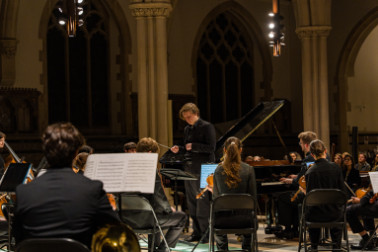Luis Felipe Barocio Castro - pilot aviator, manager and cook by conviction was born in the city of Mexico, graduated as a pilot aviator in 1989, got a Bachelor's degree in business administration in 1995, however always had been waiting for the right time to engage with his big passion in life - cooking. He started a small business as a supplier of major chain of the hotels in the city of Mexico, and thus ever more got convinced in his great passion of gastronomy. He got a diploma in culinary arts in Ambrosia Culinary Center. Before graduating he worked as a manager of the Le petite Cluny restaurant in the city of Mexico, went to San Sebastián España to learn thoroughly about the Basque cuisine. 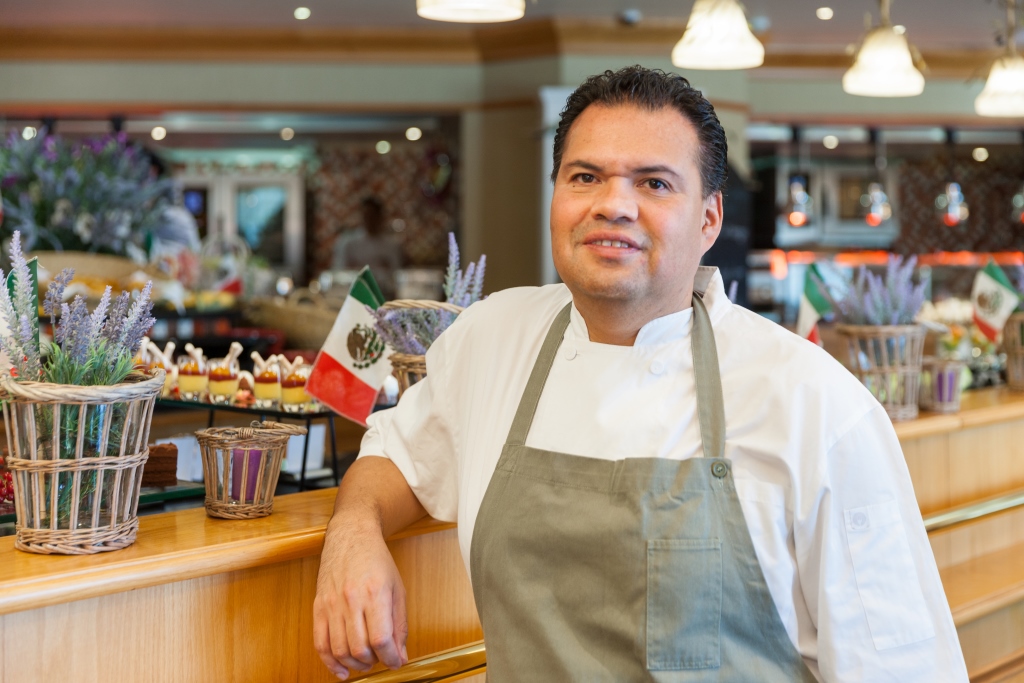
Later he became a head chef of the restaurant, and adviser of Agave Blue restaurant in Miami, Florida. In the year of 2002 he decided to undertake a long and arduous road to the city of Mérida, Yucatán, with the illusion of all cooks to open his own restaurant. However, in August 2002 he began his career as a teacher and teaches’ master of gastronomy in Mérida, preparing cocktails and offering dinners for the clients in Germany, Uruguay, France, Chile, Colombia, Peru, Argentina, Spain, Guatemala, the US and UK, Russia and on the consulates of Mexico in Raleigh, Sacramento, San Francisco, Las Vegas and Miami, as well as the cocktail party on national holidays in Kyiv, Ukraine, in September of 2013, 2014, 2015, 2016 and this year.
His colleague and friend Fernando Lara Hinojosa started cooking in a very well-known Catering House in Mexico city called Banquetes Ambrosia as a line cook, after a year he entered their school program in 1998 and to get a scholarship. In 2001 he traveled to Turin to do a master course at ICIF ( Italian culinary institute for foreigners) after winning second place in a culinary contest. When he graduated this culinary school he worked as the catering sous chef in Banquetes Ambrosia for two years and then traveled to Merida to work as an instructor in “Culinaria del Sureste” that has been owned by Luis. In Mexico city he worked in Vivant and Les Moustaches restaurants. In 2008 he went to Toronto to work as a head chef at Folcos Ristorante in Markham, Ontario for two years. That time together with cooking Italian food he managed to put some Mexican cuisine specials, which were very well accepted. In 2015 he went to the island of Cozumel to open a modern Mexican restaurant called “Jacinta”, and since 2017 he have worked as head chef in “Las Adelitas” Mexican restaurant in Prague. 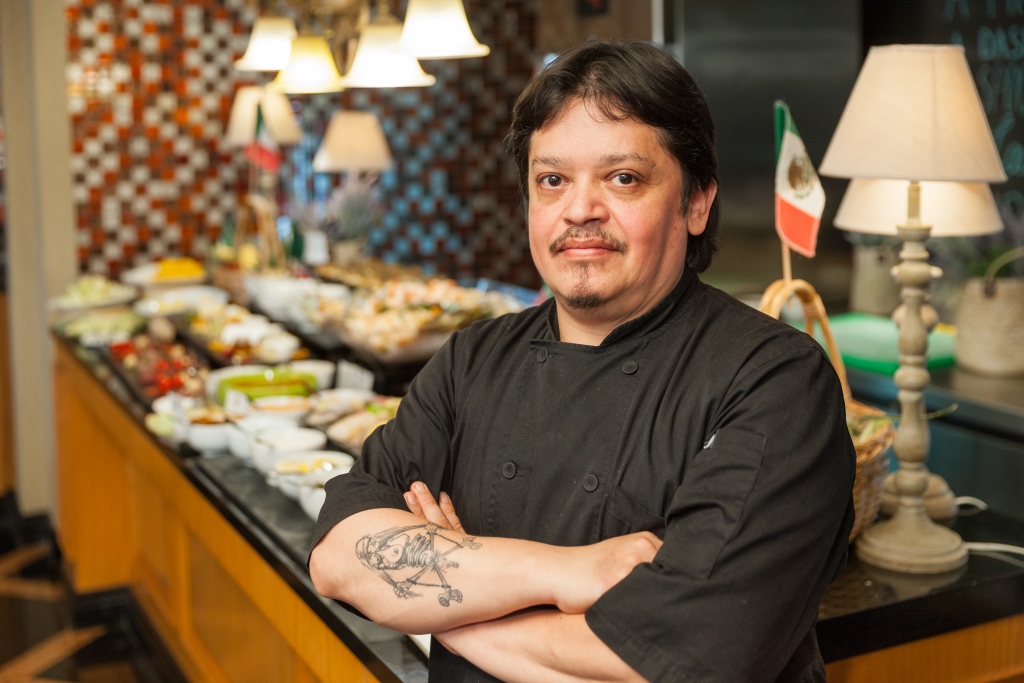
Together with Luis Felipe Barocio Castro he was making dinner for the National Independence Day of Mexico in Kyiv held by Mexican Embassy.
Luis, it is not your first visit in Ukraine. Do you see any changes? What do you like in this country and what don’t you like?
Luis: This is my 5th time here. What I like most is people, they are very nice. At the beginning they seem to be cold but once you know them, they are nice, easy going, they like to share things with you, they want to know you better. It is the same like in Mexico. I’ve got so many Ukrainian friends here now. The chef who has worked here is at Yukatan now and we are still in touch, we share some recipes. I like the city, it is beautiful. Last year I was in Moscow and I did not like it at all, its soviet times architecture. Here the churches are beautiful, as well as the streets and buildings. But some of my friends from here moved to other countries, this is pity. But in general everything is positive for me here. I’ve been only in Kyiv and I would love to go to other cities, like Lviv, Odesa and others. May be for vacation I will go there.
Fernando, but for you it is just first impression about Ukraine. How did you find it?
Fernando: I found it very interesting, Kyiv is an absolutely beautiful city, I hope to come back soon!!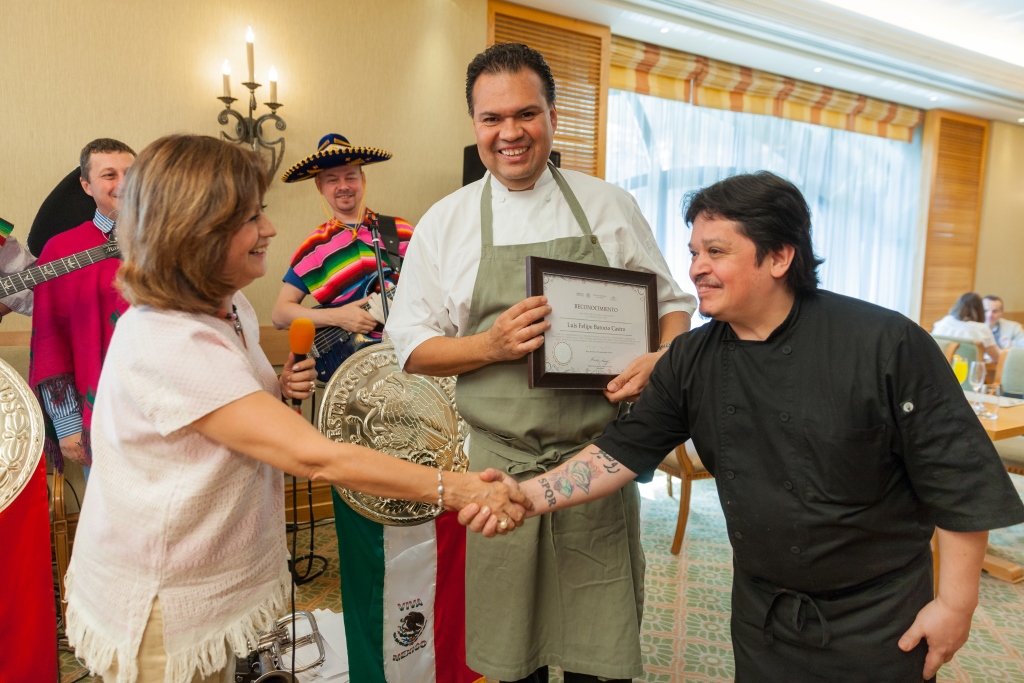
Ok, let us talk about gastronomy. What are the stereotypes about Mexican cuisine? What are the true facts and what is false?
Luis: Mexican food now is all over the world but very often it is not the real Mexican food, it is a kind of tex-mex food. So what we are trying to do when we travel is to demonstrate that we are more than fajitas and nachos. We want to bring the tamales, moles and ceviches and to show the richness and variety of our culture and gastronomy. And one more stereotype is about that fact that our cuisine is very spicy, actually it is not. Yes we love spice of course, but we always serve it aside, so you can add it to your dish.
Read: Stefano Antoniolli: Italian Chef in Poltava
Fernando: Yes, I agree with Luis that the most common or known stereotype is that nachos and burritos are Mexican cuisine. But it is more complicated and it varies from state to state in the country. There are different styles, flavors and recipes. And yes, our cuisine is not so spicy, even though there is a lot of types of peppers around the country, you can always control the spiciness and just use its flavor.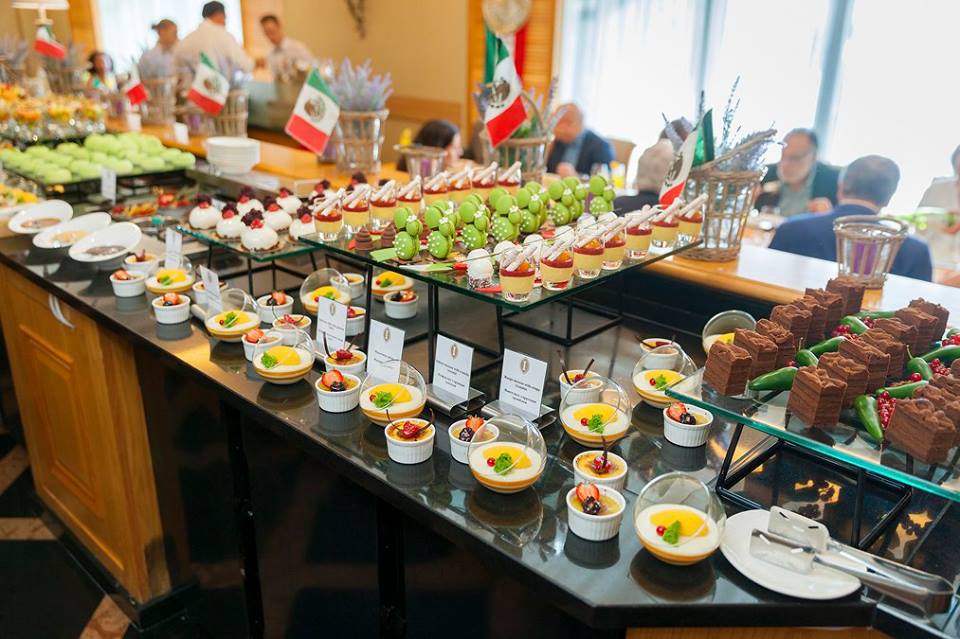
Did you try Ukrainian cuisine?
Fernando: Unfortunately it was a short trip and I was busy most of the time, but i did try a few things and really enjoyed them. I tried holodets, Chicken Kiev, Some sausages and vareniky (dumplings).
Luis: Yes, I’ve tried and I like borsch, bread, herring, salmon, vareniky. I don’t understand too much salo, but with dark bread, pickles and mustard it is nice. I like all variety of sausages and pickled vegetables.
Did you find something similar between Ukrainian and Mexican cuisine?
Fernando: I don’t think there’s much in common, but still our cuisines are both very traditional.
Luis: We also like pickled vegetables, not so much as here, but anyway, we like them also. We have some dish in Yucatán and we serve it with pickled onions. We don’t eat so much bread because we don’t have that quality of flour that you have here, the bread here is amazing. We like more corn.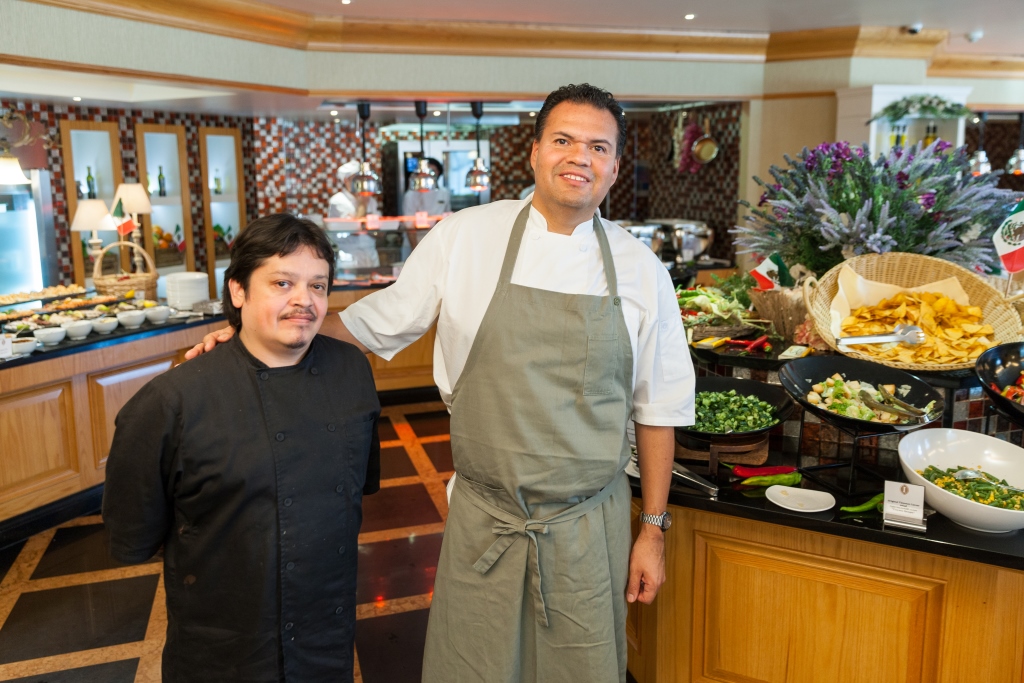
How do you improve your professional skills usually?
Fernando: I try to be aware all the time of what’s new in the industry, reading and traveling. I think the trips help a lot because you have the opportunity to learn about flavors, preferences and culture from a different perspective.
Luis: For me it is always like a challenge. I have to work in so many different cruses around the world. I am easy going, because I have to cook with cooks from different countries and to find common language with them. I understand that it is not their culture and their food. I need to be really flexible to people to show them how to cook this or that dish and in the end I have to serve a dinner in the best possible way. I just don’t have time to get angry or something like that.
What is the recipe of being a good chef for you?
Luis: To love your ingredients, to love your techniques and your culture, to try to share them in the best possible ways and just to love your profession, which is not so simple as it seems. Many people tell me: I love the way you travel. I say – no, you will not love it so much, believe me, because it is not so easy. You have a bit of time to rest between your flights and trips. But still if you love your job it inspires you.
Fernando: I think the recipe is to try to be constant in whatever you do, and to follow three unforgettable rules: passion, common sense and “mise en place” (a French term that is used in the kitchen and means that everything is in a right place and is ready for service).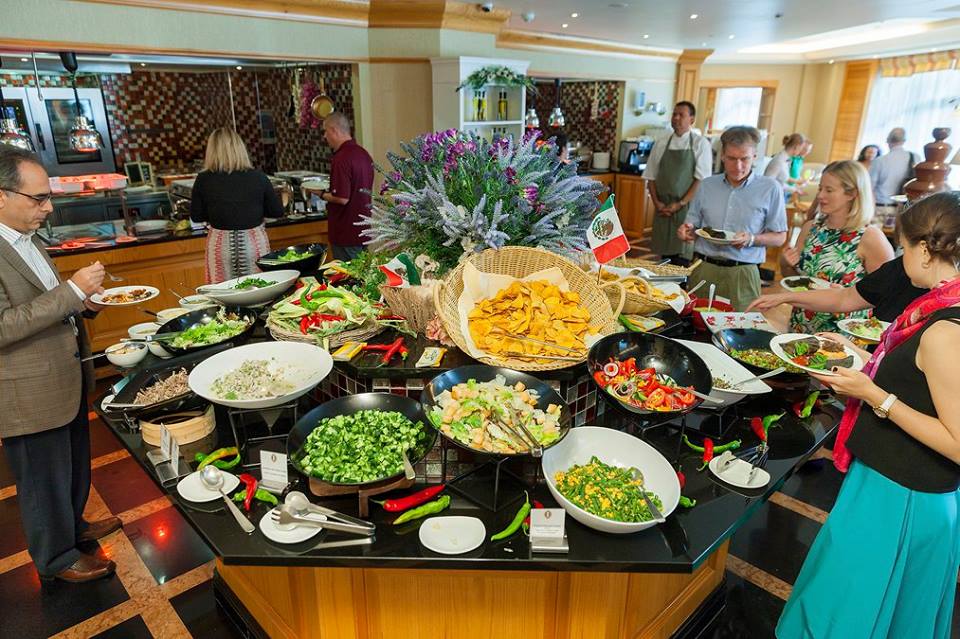
What is your favorite dish to cook?
Luis: There is a dish that it is not so easy to make, I make it only in Mexico because of all ingredients, it is called barbacoa. It is like a goat stew made in the hole in the ground, we cover it with some rocks. It is a kind of Mexican barbeque. Meat is wrapped in the leaves of big plant for tequila making, so meat has the flavor of these leaves a bit. In the oven it is cooked for 6-7 hours with 140 degrees. Juice comes down into a big bole below the meat. Then we add some rice and some other ingredients into this juice and it turns into broth served usually with borracha salsa (made with some alcohol and some chili spices) and tackles, onions, fresh juice. It is the best for hangovers It helps to recover.
Read: Dima Shovkoplyas: About Bartender Profession
Fernando: I wouldn’t say I have a favorite one, I like to try all possible recipes. That keeps me away from monotony, but if I had to choose one I think it would be making tamales.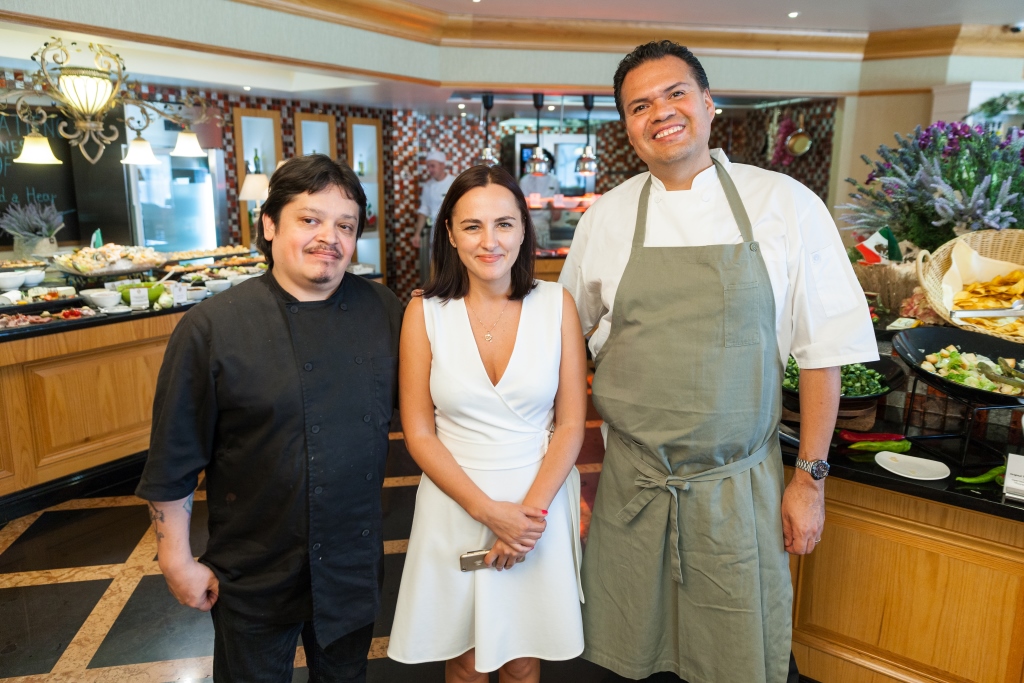
What is your chef’s dream?
Luis: Well, I love Mexican and Asian food. I had a chance to go to Asia and it was like my dream came true, I had a chance to eat all of these dishes, to see all ingredients. But still I have a dream to open a small restaurant for 35 people and just cook for them on daily basis using market products that we have in my hometown in Mexico.
Fernando: I guess, like a lot of other chefs and like Luis, I would like to have my own restaurant, where I could express my vision of food.
What is the most important thing in the restaurant?
Fernando: Without a doubt, it is human resource. You are everything or nothing with or without them.
Luis: Good service, good quality ingredients, to work with local producers, fishermen, to respect the nature and seasons, to be in harmony with that.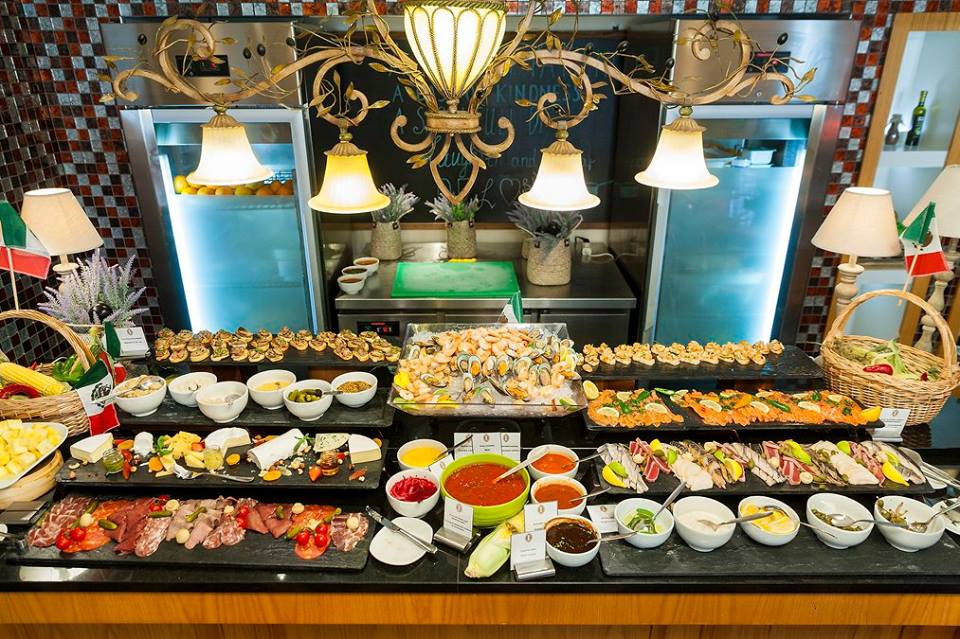
How do you imagine the food of the future? Let us dream about 2067.
Fernando: Hope it doesn’t happen, but, looking at the way how things are developing now in the industry, I can imagine it like in the cartoons, that you take a pill out of a bag, you add a couple of drops of water and your dish is ready! (smiling)
Luis: I guess people will say that we will have something like astronaut food, to open it in a small bag and to eat it like a soup or something, but I think it will be otherwise. People will go back to the roots. Organic products – that is the way how it was in the beginning. People will understand and respect the nature and seasons for products, will give them time and space to grow. People will take more care of ingredients. Even the young generation now is more careful about what they eat and I like that. I think that should be the way.
Interviewed by Anna Vishtak, photos by Aleksandr Lobanov
Fernando and Luis: Mexican Food is More Than Fajitas and Nachos
We met with two great Mexican chefs in Kyiv while they were serving special brunch in the name of Mexican Independence Day organized by the Embassy of Mexico. It was a great chance to talk to them and to understand better real Mexican cuisine and traditions and how these guys feel in Ukraine.

















